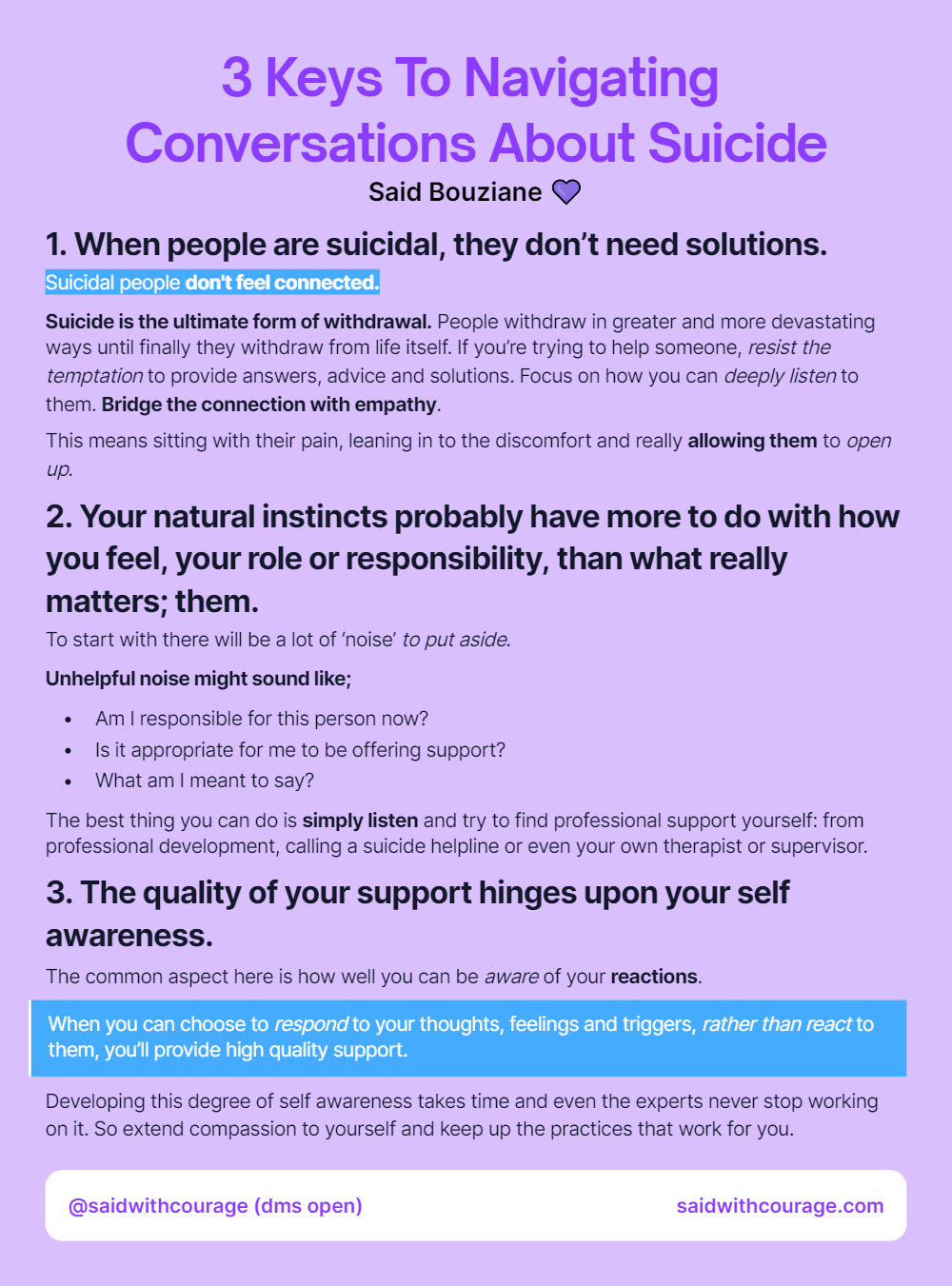1. When people are suicidal, they don’t need solutions.
Suicidal people don’t feel connected.
Suicide is the ultimate form of withdrawal. People withdraw in greater and more devastating ways until finally they withdraw from life itself. If you’re trying to help someone, resist the temptation to provide answers, advice and solutions. Focus on how you can deeply listen to them. Bridge the connection with empathy.
This means sitting with their pain, leaning in to the discomfort and really allowing them to open up.
2. Your natural instincts probably have more to do with how you feel, your role or responsibility, than what really matters; them.
To start with there will be a lot of ‘noise’ to put aside.
Unhelpful noise might sound like;
- Am I responsible for this person now?
- Is it appropriate for me to be offering support?
- What am I meant to say?
The best thing you can do is simply listen and try to find professional support yourself: from professional development, calling a suicide helpline or even your own therapist or supervisor.
3. The quality of your support hinges upon your self awareness.
The common aspect here is how well you can be aware of your reactions.
When you can choose to respond to your thoughts, feelings and triggers, rather than react to them, you’ll provide high quality support.
Developing this degree of self awareness takes time and even the experts never stop working on it. So extend compassion to yourself and keep up the practices that work for you.

